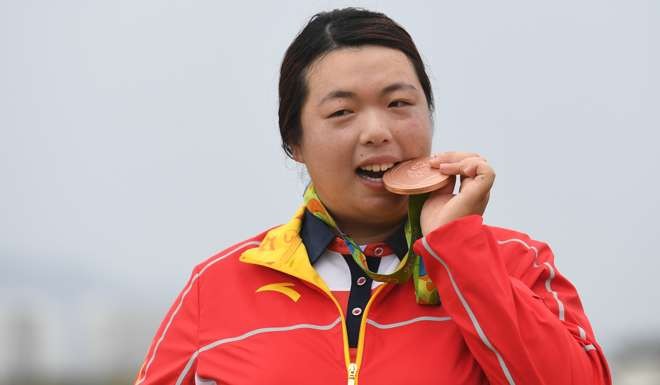
With even the Asian Tour wary of expanding in China, golf looks like missing out on country’s sporting boom
Banned then not banned, supported then criticised, the future of golf in China is a mystery to everyone
China’s sports economy bubble inflates apace, with just about every sport you can think of trying to ride it into the stratosphere.
Your sport has no history in the country? The populace is barely aware it exists? Not a problem.
There are concerted efforts to make ice hockey a thing, with a new Beijing team – the harmoniously named Kunlun Red Star – entering the Russian league.
Alisports is investing US$100 million to drive “the olive-ball game” – or rugby as you might know it.
Cadres and companies have received orders from the top that China should become a major winter sports player, with the Winter Olympics coming to Beijing in 2022.
Notable by its absence from the sporting gold rush is golf, a sport that’s had an uneasy relationship with authorities in China. Just last year it seemed it had been banned (again) because President Xi Jinping saw it as little more than a conduit for corruption.

As an example of people’s wariness to be linked with the game, Mission Hills, which has two sprawling golf resorts, seems to have been making a concerted effort to refocus in recent years, promoting a Boris Becker tennis academy in Shenzhen and a huge football academy link-up with Barcelona in Hainan.
Yet in April of this year the tea-leaves seemed to suggest that the clampdown had been lifted, and in August state media hailed Feng Shanshan’s bronze medal at the sport’s Olympic debut. Xi even met Feng after the Rio Games – “President, you’re so handsome!” she gushed.

Amid the uncertainties even the Asian Tour, the leading golf organisation in the region, is somewhat wary of greatly expanding its presence on the mainland, new chief executive Josh Burack told me this week at the UBS Hong Kong Open.
Burack, a sports marketing executive who has been in Asia for 20 years, is actually more focused on traditional strongholds – perhaps not coincidentally, also countries where the lie of the land is a lot easier to read.
“It’s an important market and we have ongoing dialogue with the Chinese Golf Association,” said the American, who has been in his post for about two months.
“Like us, they have a new general secretary, they’re looking ahead. We had a very positive meeting with them a few weeks ago when I was in Shanghai and we’re optimistic we’ll be able to work with them to stage some tournaments together in China.
“[But] while China’s very important, it’s just one of all the markets in Asia. We view Southeast Asia as a whole as very important, but also we’re going to put more focus on East Asia than we have.
“We’d like to do more tournaments in Japan, more in Korea, here in Hong Kong, Macau.
“East Asia is very much the traditional stronghold of golf in Asia with Japan, Korea, Hong Kong, Macau, Taiwan. We have a reasonable number of tournaments scheduled in East Asia, but I’d like to put even more focus here because I think there’s an appetite.”

A mooted merger with the bigger European Tour was downgraded to a “strategic alliance”, and that’s a “win-win” for Asia, says Burack.
“The feedback I’m getting not just from the players but all the stakeholders is that people are very happy that the merger didn’t take place. We can still work with the European Tour, but at the same time control our own destiny.
“At the same time all the major tours would love to do more in Asia. Now when the European Tour add a new event in Asia they have to do it with us, so it’s actually win-win.”
And while sports industry professionals salivate at Chinese projections that the country’s sporting economy will grow 15-fold in the coming years, Burack is focused on boosting the tour’s commercial efforts in the rest of Asia.
“Even though the global economy has slowed down a bit the economy across pan-Asia is still the fastest growing region in world and we have consumers all the multinational corporations want to meet.
“The reality is at the moment a lot of our tournaments are sponsored by banks, which is fantastic but I’d love to see other sectors come in.
“In the past perhaps the Asian Tour wasn’t as organised or structured on the commercial front, that’s what we trying to build now ... to have much a better opportunity to ‘hit more holes in one’ on that front.
“I don’t think there’s a lack of support [from companies other than banks], but we need to be marketing golf a bit more on the offensive.”
But – for now at least – China can wait.

